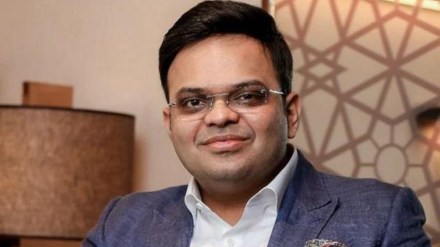The International Cricket Council (ICC) will hold its Annual Conference in Colombo later this month, but the election for the chairman position is not on the agenda. The new chairman will be elected in November, giving Jay Shah at least three months to decide on his relocation to Dubai. The annual conference will take place from July 19 to 22.
Shah has been non-committal about his interest in the chairman position, currently held by Greg Barclay for the past four years. Barclay, a New Zealander, was supported by the secretary of the Board of Control for Cricket in India (BCCI) when he ascended to the role. He is eligible for another term and may be interested in continuing, but if Shah contests, he is expected to be elected unopposed.
Cricbuzz reported first on February 2 that the ICC has amended the chairman’s tenure from three terms of two years each to two terms of three years each. If elected, Shah will serve a three-year term as ICC chairman, after which he will be eligible to become the president of the BCCI in 2028, according to the BCCI constitution.
International media has speculated about Shah’s potential role in the ICC and the possibility of relocating the ICC headquarters from Dubai to Mumbai. However, such a move is not on his agenda. Shah is believed to be interested in bringing changes within the ICC, especially after the chaotic conduct of the recent Twenty20 World Cup in the United States and the West Indies. The timeline for the chairman election is expected to be formalized at the annual conference.
Meanwhile, at the Annual Conference, the election for the Associate Member Directors will be held on July 19. Eleven candidates are vying for three positions on the ICC Board of Directors, each serving a two-year term. The current directors are Pankaj Khimji of Oman, Imran Khwaja of Singapore, and Neil Speight of Bermuda.
The eight other candidates in the fray are Sam Arthur (Costa Rica), Dr. Rudie Van Vuuren (Namibia), Sankar Renganathan (Sierra Leone), Mubashshir Usmani (UAE), Gurumurthy Palani (France), Mahinda Vallipuram (Malaysia), Stephen Musaele (Rwanda), and Mahmood Gaznavi (Singapore). Among these, Usmani is a serious candidate, being a member of the Chief Executives Committee (CEC) and enjoying support from many Associates due to the ILT20 in the UAE.
Another strong contender is Sankar Renganathan, an Indian with connections across all five continents. Formerly associated with the now-defunct United States of America Cricket Association (USACA), he has worked in Asia and the Americas. He currently represents Sierra Leone and has been proposed by Germany. Renganathan’s vision is to transform the future of cricket by empowering Associate Members and enriching the global cricket ecosystem.
A total of 45 Associate members, including 40 voting Associates and five non-voting Associates from five different zones – Africa, Americas, East Asia Pacific, Asia, and Europe – will elect the three directors. The ICC states that the election will be conducted using an electronic voting system allowing for anonymous voting. If the electronic system fails, a manual vote by secret ballot will be conducted. Voters will rank their three preferred candidates on the ballot.
According to the ICC manual, if there is still a tie, the candidates involved will be asked to agree among themselves on who should be appointed. If they cannot agree, a coin toss will decide the successful candidate.
